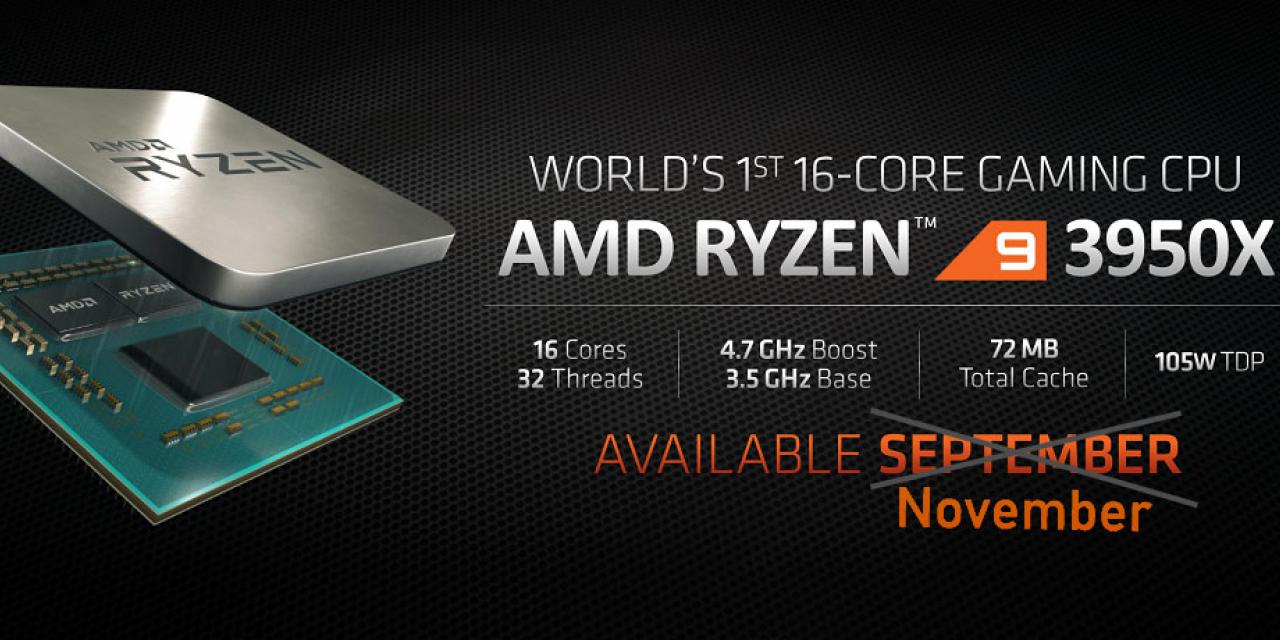
AMD's Ryzen 3000 processors have been fantastic in many ways, offering performance that was more than competitive with Intel's best in multithreaded and singlethreaded tasks. But it has faced some issues, most notably, in hitting the clock speeds that the chips were originally rated for. That's proved to be as much of a problem for the upcoming, 16-core 3950X, as much as any other of AMD's CPUs, and it's allegedly the main reason that the CPU's launch was delayed until November.
Ryzen 3000 processors were thought to be having some difficulty in hitting advertised boost clock speeds when released, but it wasn't until a deep dive investigation by professional overclocker, Der8auer, that it became clear how widespread the problem was. Only a few percent of all Ryzen 3000 CPUs were hitting their boost clock targets. While the difference was typically only 100MHz or so, that was still a disappointment for AMD fans and to some, constituted false advertising.
AMD has improved its available BIOS options for Ryzen 3000 users in the months since and the problems have largely been resolved, but it now needs to make sure that the 3950X can hit its slated 4.7GHz boost clock, or it's going to look bad in early reviews. That's why it's been pushed back to November, for AMD to tweak a few things to make it possible.
This news comes from a DigiTimes report, which also highlighted that although TSMC had seen some supply problems with 7nm hardware, that it wouldn't and hadn't affected the launch of the 3950X. This was purely an AMD decision based on unsatisfactory clock speeds.
Hopefully AMD can iron our the creases over the next couple of months.








